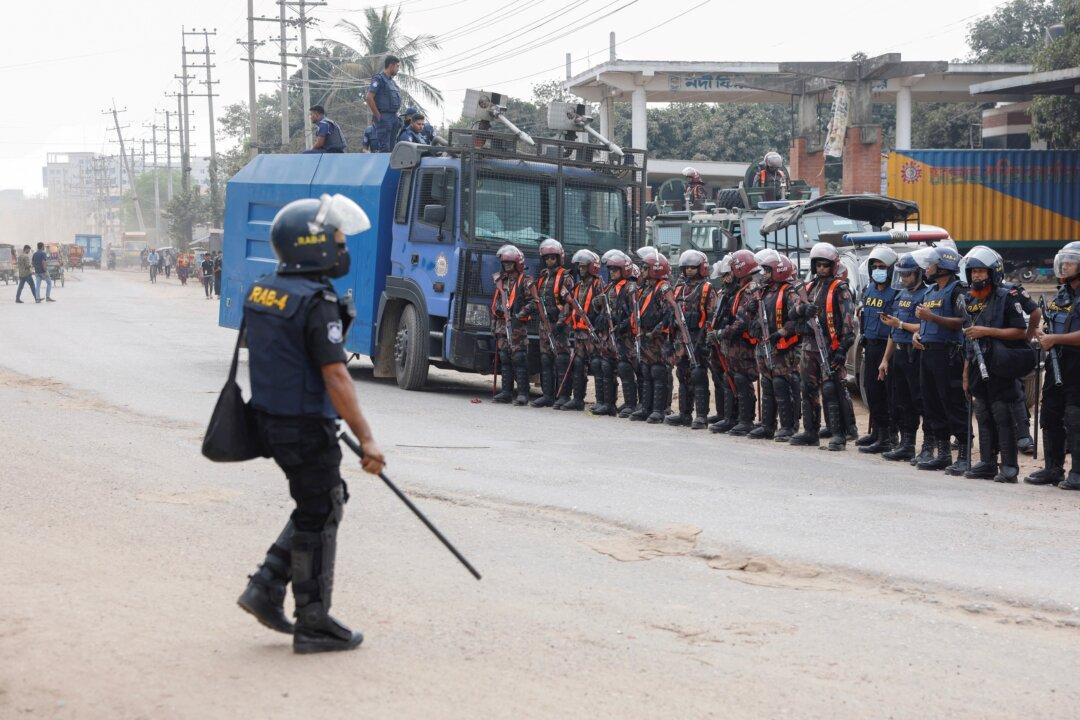DHAKA—One woman was killed as police in Bangladesh used teargas and rubber bullets to disperse stone-throwing protesters as a demonstration by garment workers for more pay turned violent on Wednesday.
The latest death was the third since protests erupted in the past week. On Tuesday, the government said that the minimum wage would rise by 56.25 percent to 12,500 taka ($114) a month from Dec. 1, the first increase in five years, but the workers are demanding almost twice the amount offered.





